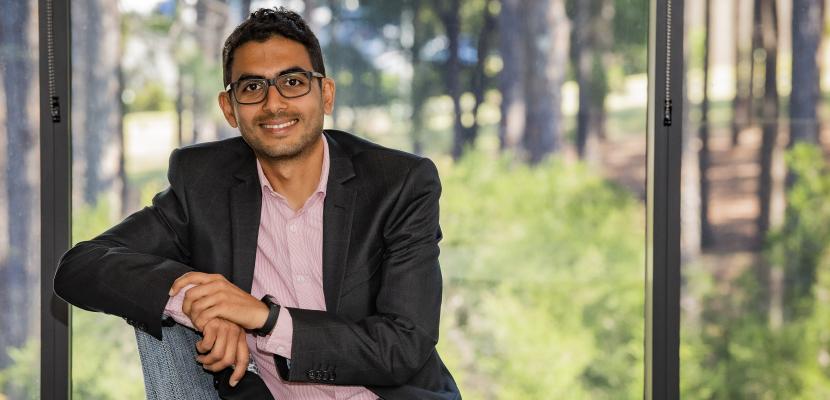
Sufferers of common ailments such as lower back pain and depression could soon seek relief through evidence-based effective non-drug treatments, thanks to funding awarded to a Bond University researcher.
Loai Albarqouni, a postdoctoral research fellow at the university’s Institute for Evidence-Based Healthcare was this week named as the recipient of $650,740 funding from the National Health and Medical Research Council’s Investigator Grant scheme.
The funding spans five years and includes Dr Albarqouni being named as an NHMRC Emerging Leadership Fellow.
Dr Albarqouni said he was “honoured and proud” to be awarded the funding, which would be used to research ways to increase the use of evidence-based non-drug treatments in primary health care.
“For example, children with middle ear effusions or glue ear. One option is to go through a surgical procedure inserting a tube in their eardrum with all the burden of surgical procedures. But there is another simple low-cost evidence based option, as simple as asking the child to blow up a special balloon with their nose that could be as effective as undergoing surgery.
“But these are not commonly practised in primary care. We would like to increase its uptake from the clinician side by more prescriptions as well as the patient side.”
Dr Albarqouni said other common non-drug treatments that could be equally or sometimes more effective than drugs included exercise for lower back pain and behavioural therapy for depression.
His research would draw upon the opinions of patients and clinicians to help develop evidence-based guides for these treatments, as well as examining ways to improve their uptake.
“Patients should at least have the right to have evidence-based information about all of the available treatment options, including non-drug treatments, to allow them to make an informed decision and to choose which option they would like, based on their preferences and their previous experience.”
The research would also investigate barriers which prevented clinicians and patients from using non-drug treatments.
“One of the major barriers is the lack of practical descriptions of non-drug treatments, they are not easy to prescribe. It’s not like a drug treatment, ‘take this tablet once a day’,” Dr Albarqouni said.
He said there was growing interest in sustainable healthcare and reducing unnecessary low-value treatments.
“Although a lot of these drugs are shown to be effective, some are unnecessary and their harms outweigh any benefit. High-value, under-used, effective non-drug treatments can provide simple low cost alternatives.
“There is high-quality evidence showing that these kinds of interventions could be as good as medication, without most of the side effects that come with drug intervention. We need to have evidence-based easy-to-use guides for patients and clinicians which might help in achieving more sustainable healthcare.”